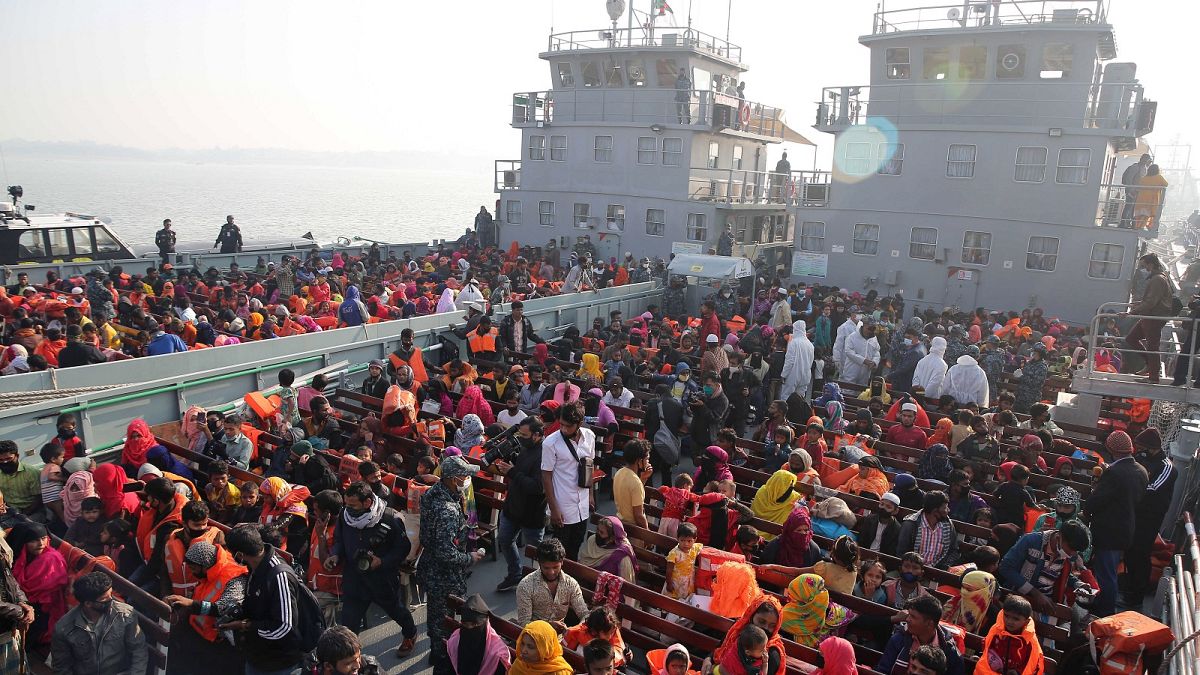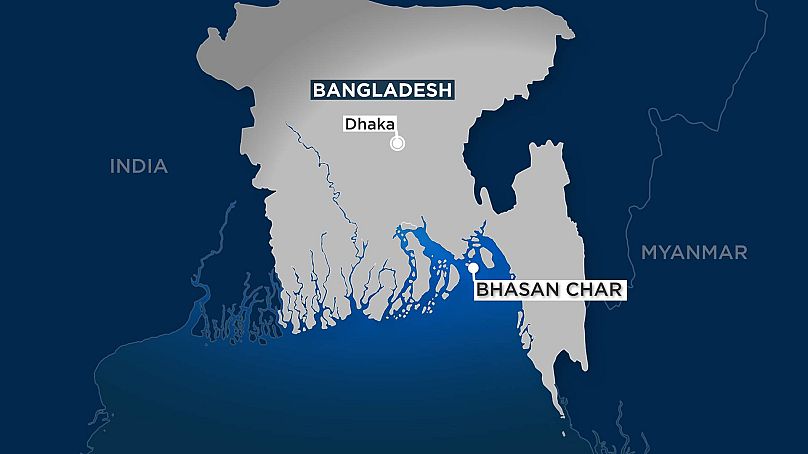The 1,700 refugees were selected because of their willingness to be moved to the island, which the Bangladeshi government said could accommodate 100,000 people.
Five Bangladesh navy ships carrying more than 1,700 Rohingya refugees left the southeastern port city of Chittagong on Tuesday for an isolated island where they will be relocated despite concerns among human rights groups about their safety.
The refugees were expected to reach Bhashan Char island after a three-hour naval journey, a government official involved with the process said. The official, who spoke on condition of anonymity because he was not authorised to talk to the media, said the refugees were taken to Chittagong from their camps in Cox’s Bazar by buses on Monday and stayed overnight in a temporary camp.
Authorities insist the refugees were selected for relocation based on their willingness, and that no pressure was applied on them. But several human rights and activist groups say some were forced to go to the island, located 21 miles (34 kilometres) from the mainland.
The island surfaced only 20 years ago and was not previously inhabited. It was regularly submerged by monsoon rains but now has flood protection embankments, houses, hospitals, and mosques built at a cost of more than €91 million by the Bangladesh navy.
The island’s facilities are designed to accommodate 100,000 people, just a fraction of the million Rohingya Muslims who fled waves of violent persecution in their native Myanmar and are currently living in crowded, squalid refugee camps in Cox’s Bazar district.
Authorities sent the first group of 1,642 Rohingya to the island on December 4 despite calls for a halt by human rights groups.
International aid agencies and the United Nations have opposed the relocation since it was first proposed in 2015, expressing fear that a big storm could overwhelm the island and endanger thousands of lives.
The UN also voiced concern that refugees be allowed to make a "free and informed decision" about whether to relocate. Amnesty International and Human Rights Watch have urged the government to cancel the plan.
An influential cabinet minister and general secretary of the governing Awami League party, Obaidul Quader, said Monday that the Rohingya are being moved to the island because their repatriation to Myanmar has been delayed.
He said refugees who were earlier taken to Bhashan Char have expressed satisfaction.
About 700,000 Rohingya Muslims fled from Buddhist-majority Myanmar to Bangladesh after August 2017, when Myanmar’s military began a harsh crackdown on the minority group following an attack by insurgents.
Security forces have been accused of mass rapes, killings, and burning of thousands of homes.
Bangladesh has attempted to start sending refugees back to Myanmar under a bilateral agreement, but no one was willing to go.
The Rohingya are not recognised as citizens in Myanmar, rendering them stateless, and face other state-sanctioned discrimination.

